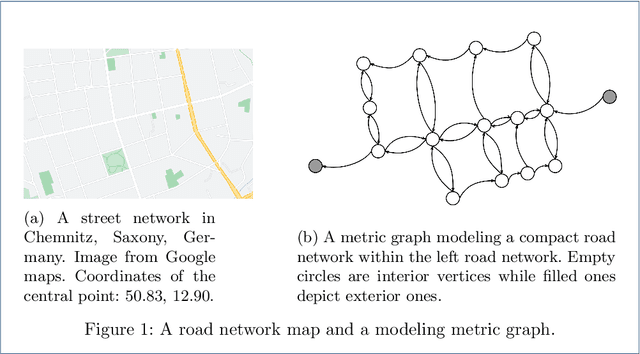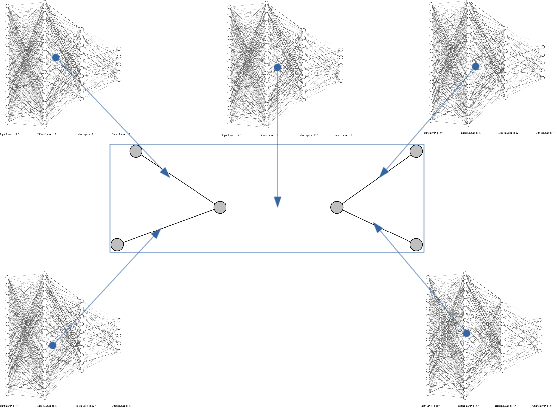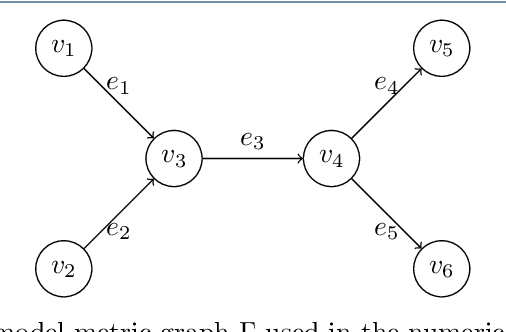Jan Blechschmidt
Physics-Informed DeepONets for drift-diffusion on metric graphs: simulation and parameter identification
May 07, 2025Abstract:We develop a novel physics informed deep learning approach for solving nonlinear drift-diffusion equations on metric graphs. These models represent an important model class with a large number of applications in areas ranging from transport in biological cells to the motion of human crowds. While traditional numerical schemes require a large amount of tailoring, especially in the case of model design or parameter identification problems, physics informed deep operator networks (DeepONet) have emerged as a versatile tool for the solution of partial differential equations with the particular advantage that they easily incorporate parameter identification questions. We here present an approach where we first learn three DeepONet models for representative inflow, inner and outflow edges, resp., and then subsequently couple these models for the solution of the drift-diffusion metric graph problem by relying on an edge-based domain decomposition approach. We illustrate that our framework is applicable for the accurate evaluation of graph-coupled physics models and is well suited for solving optimization or inverse problems on these coupled networks.
A comparison of PINN approaches for drift-diffusion equations on metric graphs
May 15, 2022



Abstract:In this paper we focus on comparing machine learning approaches for quantum graphs, which are metric graphs, i.e., graphs with dedicated edge lengths, and an associated differential operator. In our case the differential equation is a drift-diffusion model. Computational methods for quantum graphs require a careful discretization of the differential operator that also incorporates the node conditions, in our case Kirchhoff-Neumann conditions. Traditional numerical schemes are rather mature but have to be tailored manually when the differential equation becomes the constraint in an optimization problem. Recently, physics informed neural networks (PINNs) have emerged as a versatile tool for the solution of partial differential equations from a range of applications. They offer flexibility to solve parameter identification or optimization problems by only slightly changing the problem formulation used for the forward simulation. We compare several PINN approaches for solving the drift-diffusion on the metric graph.
The Oracle of DLphi
Jan 27, 2019Abstract:We present a novel technique based on deep learning and set theory which yields exceptional classification and prediction results. Having access to a sufficiently large amount of labelled training data, our methodology is capable of predicting the labels of the test data almost always even if the training data is entirely unrelated to the test data. In other words, we prove in a specific setting that as long as one has access to enough data points, the quality of the data is irrelevant.
 Add to Chrome
Add to Chrome Add to Firefox
Add to Firefox Add to Edge
Add to Edge